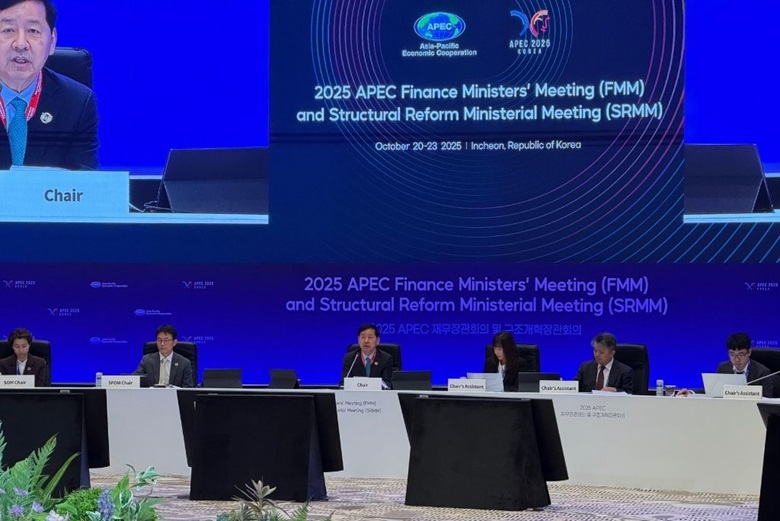APEC Finance Ministers Confront Fiscal Pressures and Digital Shifts in Incheon

APEC finance ministers are gathered in Incheon, Republic of Korea, to shape coordinated responses to fiscal challenges and digital transformation, focusing on the global economic outlook, sustainable public finances and innovation in financial systems.
Opening the APEC Finance Ministers’ Meeting, Dr Yun Cheol Koo, Deputy Prime Minister and Minister of Economy and Finance of the Republic of Korea, called for forward-looking coordination as economies navigate heightened policy uncertainties.
“Today, policy uncertainty including in trade, elevated debt levels, demographic and climate changes continues to weigh on the Asia Pacific region,” said Dr Koo. “In this turbulent environment, APEC’s founding vision of cooperation and mutual trust remains as important as ever. By standing together in solidarity and cooperation, we can continue to overcome every challenge and crisis.”
The meeting also brings together representatives from the International Monetary Fund, Asian Development Bank, Organisation for Economic Co-operation and Development, and Inter-American Development Bank, with the World Bank participating as a Finance Ministers' Process partner, and the Development Bank of Latin America and the Carribean and the United Nations Development Programme attending as guests.
Over the course of the day, ministers discuss the global and regional economic outlook, the role of AI-driven digital finance in broadening financial access, and how fiscal systems can adapt to demographic change and long-term sustainability pressures.
Dr Koo outlined the meeting’s theme of “Innovation, Finance and Fiscal Policy for Sustainable Growth,” and emphasized that the region’s finance leaders must take the lead in steering economies through rapid digital transformation.
“We are living in the middle of AI era,” he said. “Artificial intelligence is reshaping not only our technologies but also our economies and societies, as well as the way we live and work. Much like the industrial revolution in the past, this is no longer a matter of choice, but an inevitable reality we must all confront and prepare for.”
Dr Koo stressed the need for responsible financial innovation and inclusive access, underscoring that AI-driven digital finance has enable alternative credit assessments for small businesses and help tackle challenges such as fraud and scams. “Our task is to foster innovation while building a responsible financial ecosystem that balances opportunities with risks and ensures access for vulnerable groups and remote communities.”
On fiscal policy, Dr Koo stressed the need for fiscal authorities to respond to structural societal changes. “Beyond our traditional roles in defense, welfare, and education, we must also respond to aging populations and climate change. To secure the engines of future growth, we must channel resources into critical areas such as AI transformation so that our economies can continue to expand sustainably,” he added. “At the same time, we must strengthen the sustainability of public finances through restructuring expenditures and reforming tax systems.”
“The future is not something to wait for, it is something we should create together. When we, coming from diverse circumstances, stay connected and united in the face of our shared challenges, the Asia-Pacific region can achieve resilient prosperity,” Dr Koo concluded.
Finance ministers will join with their counterparts from the Structural Reform Ministerial Meeting for a joint session on innovation and digitalization on Wednesday. The dialogue will explore how APEC economies can harness digital technologies to boost productivity, strengthen regulatory coherence and ensure that the benefits of digital transformation are broadly shared.
For further information or media inquiries, please contact:
[email protected]

